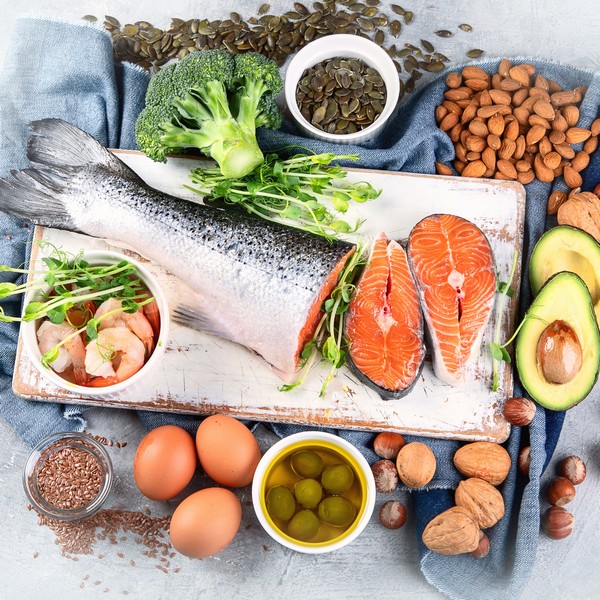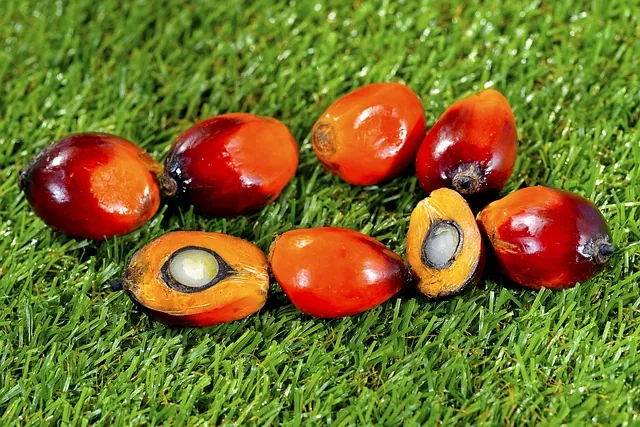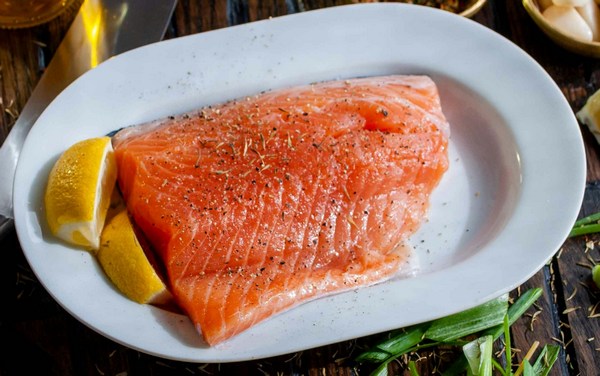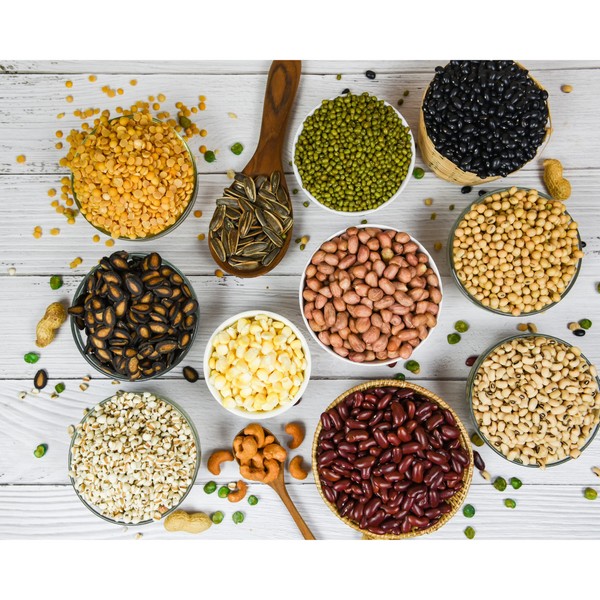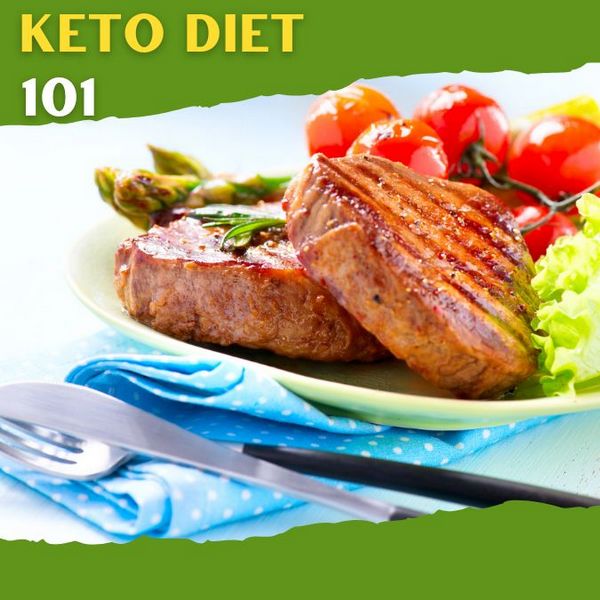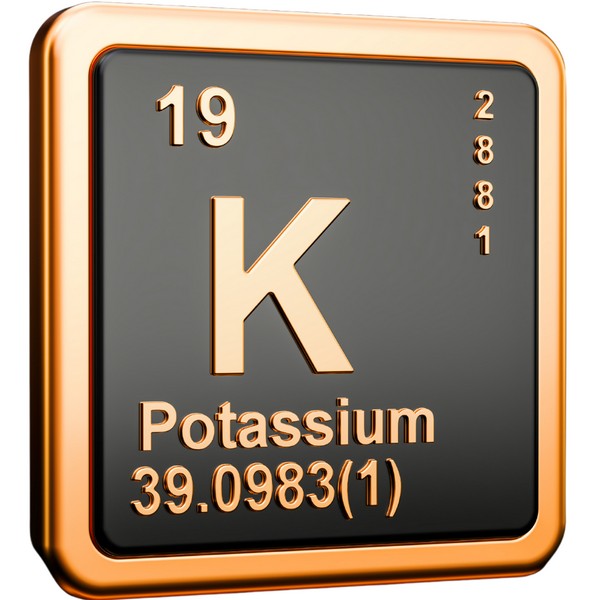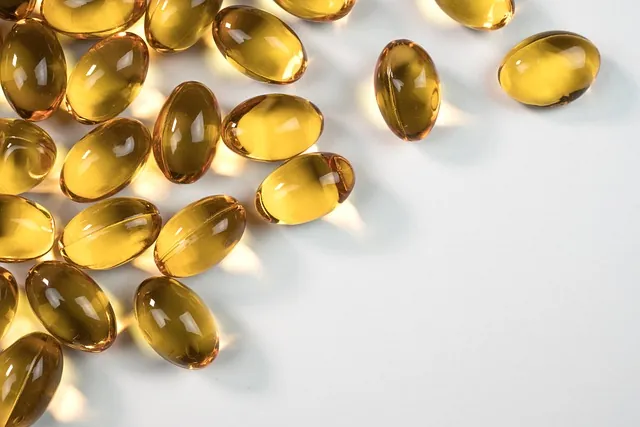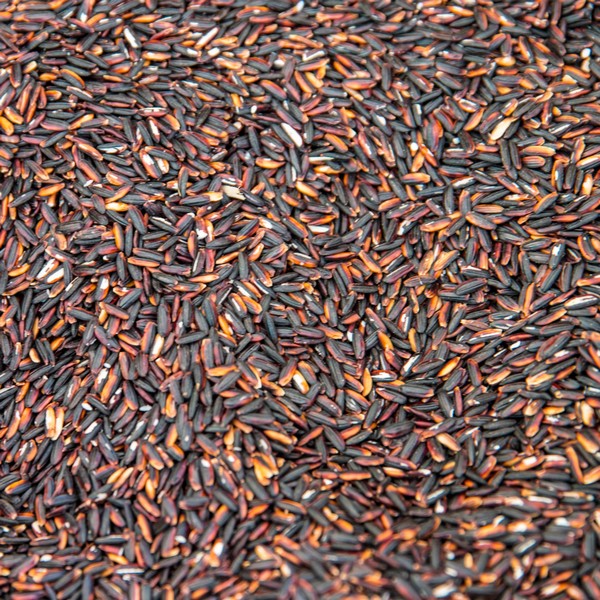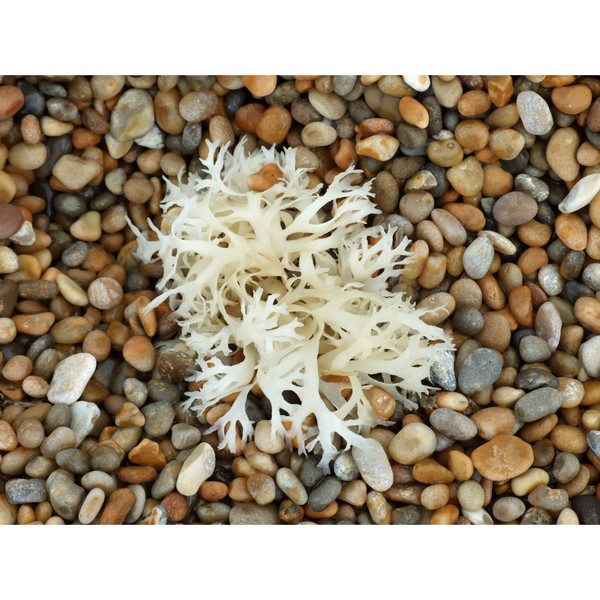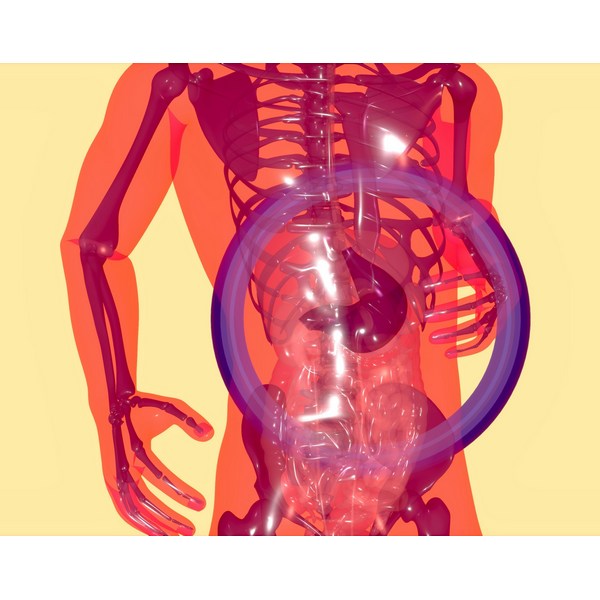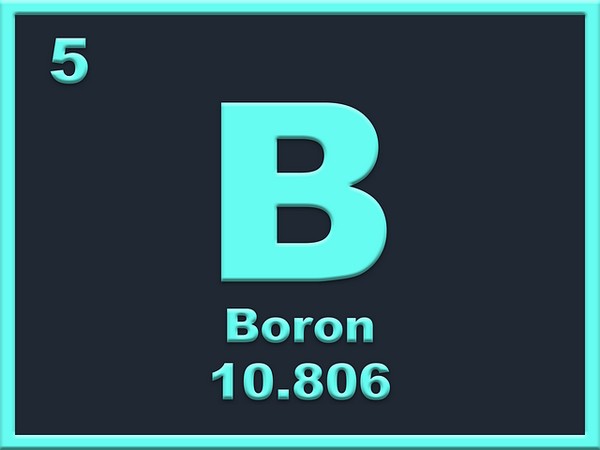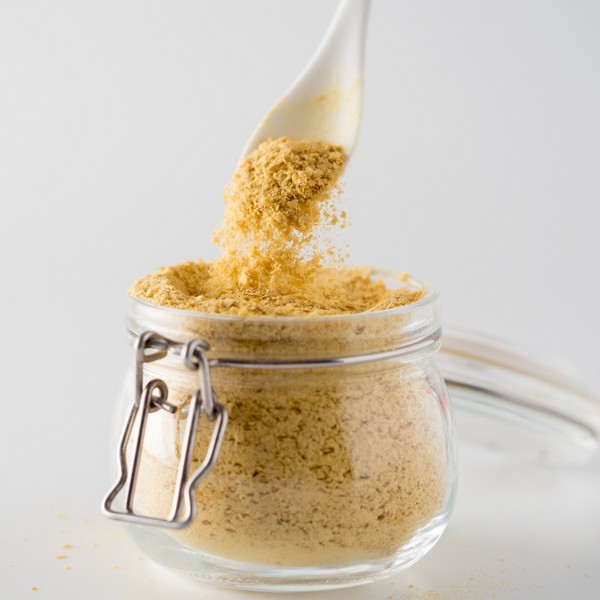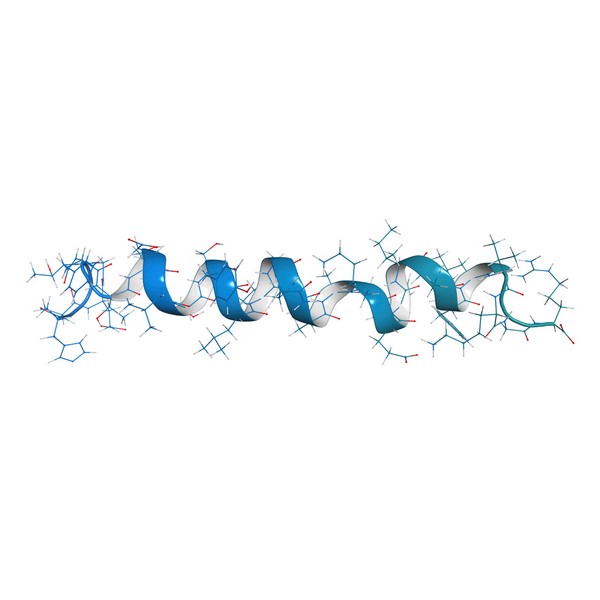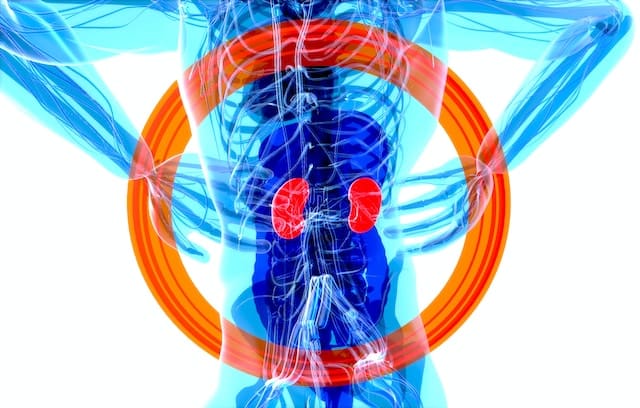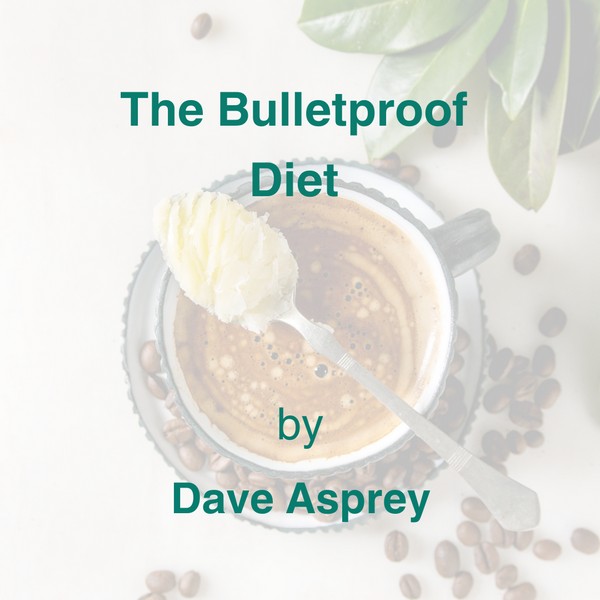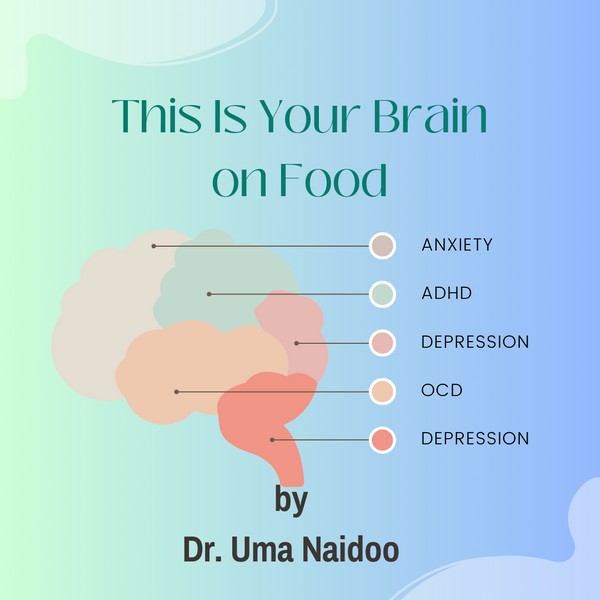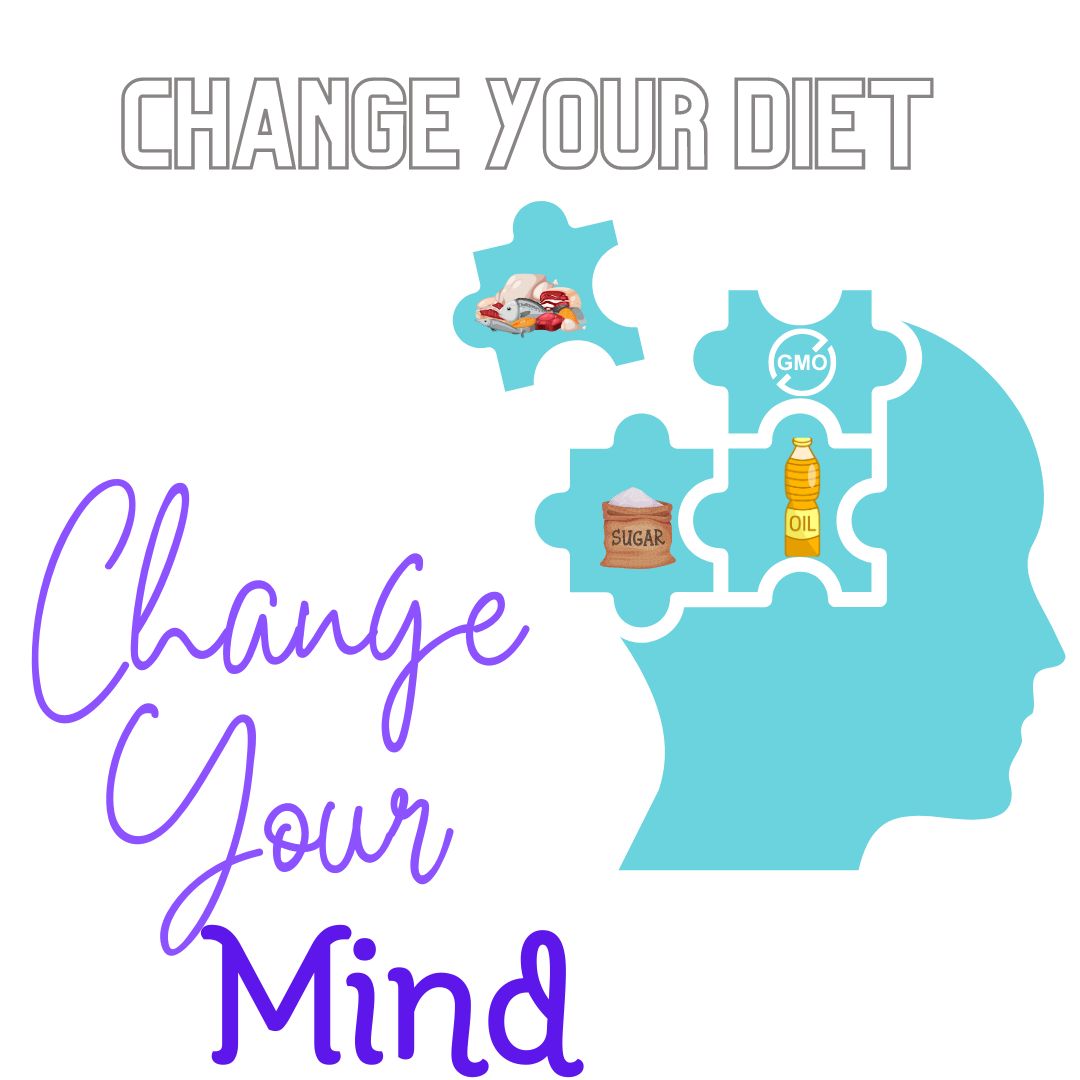In our increasingly busy lives, finding time to take care of our bodies can often take a backseat. One method that has gained attention recently for its wellness benefits is fasting.
Fasting can take various forms but all types provide numerous health benefits backed by scientific research.
Table of Contents
- The Recommended Approach
- Ways to Maximize Fasting Benefits
- How to Break Your Fast
- Autophagy Benefits of Intermittent Fasting
- Mitophagy Benefits of Fasting
The Recommended Approach
Most importantly, do not just jump off the deep end and stop eating without a plan. If you do, you may feel like you ran into a brick wall. Slow and steady is the approach you want to take. Dip your toes in a bit. Make it barely noticeable. Here’s a possible way to ease into it:
- Eat dinner half an hour earlier for about a two-week period i.e. go from 8pm to 7:30pm for a while
- Eat dinner half an hour earlier for about another two weeks i.e. go from 7:30pm to 7pm for a while
- Repeat until your dinner time is close to 4 pm if possible or you skip dinner completely about 3 days a week
- Do the inverse with breakfast i.e. go from eating 7am to 7:30am for a couple weeks and so on
- Repeat until breakfast is around 10:30 am about 5 days a week
And just like that before you know it you are a fasting guru.

The times mentioned are the best times for most people based on typical lifestyles. They are not written in stone. Feel free to dial it back at any time. Don’t be too hard on yourself if you don’t progress as fast as you think you should. It’s not a race.
That being said, the earlier you have your last meal of the day the better your outcome. Late eating negatively influences your circadian rhythm and could prevent you from having good restorative sleep.
Most interventions like fasting should be done in cycles. Do not fast every day and when eating, eat all you want, without overeating of course. No matter what you eat you will still get some benefits from fasting. So you do you.
Do bear in mind that your choices have consequences and more often than not there are trade-offs. The healthier the food you eat, the better you will feel, the easier fasting will become and the better your overall well-being. You decide what matters most to you.
Ways to Maximize Fasting Benefits
Fasting does not need to be pain and suffering. To get the most out of your fasting practice without the dreaded side effects, consider these tips during your fasting window:

- Stay hydrated:
- Fasting induces fat loss, which is accompanied by a loss of water and minerals. Drinking water with trace minerals, and adrenal cocktail, Ceremonial Grade Green Tea, or Bulletproof coffee can help minimize hunger pangs and keep you feeling refreshed. Of course, no sugar consumption of any kind.
- Exercise:
- Training in a fasted state can maximize the benefits of both fasting and exercise. Exercise itself is a hormetic stressor that boosts autophagy. However, it’s essential not to push too hard during fasting periods.
- MCT Oil (C8):
- Activated Coconut Charcoal:
- Toxic substances are stored in your body fat. When you burn fat, stored toxins are released. Fasting leads to the reduction of stored fat. Many negative effects of fasting result from this activity. Activated Coconut Charcoal binds to toxins and facilitates the transport of toxins out of the body.
How to Break Your Fast

Meal choices when you break your fast can make a big difference to your desired outcome. Above all else, do not have carbohydrates and fats at the same time.
Also, keep in mind this is just to break your fast so you can eat your regular meal after about an hour after breaking your fast.
Reduce Cortisol
- When you break your fast you do not want cortisol and insulin high at the same time. Take magnesium around two hours before breaking your fast. Around half an hour before breaking your fast, add about a teaspoon of Unrefined Sea Salt to your water and have a little bit of Ceylon Cinnamon.
Bone Broth
- Quick and simple, Bone Broth is an ideal option for breaking your fast.
Lean Protein
- This should be easy to digest. Think seafood or a non-dairy shake.
Omega 3
- Have a serving of omega-3 capsules to help to assimilate the protein you consume. Take some cod liver oil.
Sea Vegetables
- Have some kind of sea vegetable to replace any iodine you may have lost.
Fruit
- Have a little bit of kiwi, papaya or pineapple. You will get some enzymes to aid digestion and a bump of fructose to stimulate insulin and aid the uptake of protein.
An important caveat for pre-menopausal women is to avoid fasting the week before your period up to the first day of your period. Most sources of stress should be avoided during this time period. Feel free to have complex carbohydrates like plantains. Avoid all dairy.

Autophagy Benefits of Intermittent Fasting
- Intermittent fasting is a popular method of fasting that alternates between periods of eating and fasting. There are various forms, such as 16:8 (16 hours of fasting, 8 hours of eating) or 5:2 (5 days of normal eating, 2 days of reduced calorie intake). Intermittent fasting has been shown to provide numerous benefits to our bodies.
Weight loss and management:
- Intermittent fasting can help with weight loss by allowing the body to use stored fat for energy during fasting periods.
Improved metabolism:
- Fasting has been shown to increase metabolic rate, helping the body burn calories more efficiently.
Boosted brain function:
- Fasting’s hormetic stress can positively influence brain waves, improve memory, focus, and overall brain function.
Reduced inflammation:
- The break from constant food consumption during fasting can ease inflammation in the body.
Mitophagy Benefits of Fasting
Mitochondria, the “powerhouses” of our cells, play a crucial role in energy production, and stressing them can lead to positive changes.
Hormetic stress like fasting can improve mitochondrial efficiency and health, leading to better cellular function and even DNA repair. Studies have shown that this can help:
- Increase energy levels:
- With more efficient mitochondria, our bodies can produce more energy, making us feel more alert and energetic.
- Promote longevity:
- Improved mitochondrial function can slow down the aging process by decreasing the accumulation of damaged DNA in our cells.
- Prevent chronic diseases:
- Stronger mitochondria can protect against age-related neurodegenerative diseases like Alzheimer’s and Parkinson’s disease.
The human body evolved to endure cycles of alternating feasting and famine. Unfortunately, we no longer need to go hunting for food, we’re practically bombarded by it. That being said, constantly falling victim to your cravings all the time is not entirely your fault but it is your responsibility to elicit the appropriate response. Fasting, when done correctly, can be a powerful tool for enhancing overall wellness. By understanding the benefits of intermittent fasting and stressing your mitochondria, you can harness one of the cheapest positive health interventions.
Research Teong, X.T., Liu, K., Vincent, A.D. et al. Intermittent fasting plus early time-restricted eating versus calorie restriction and standard care in adults at risk of type 2 diabetes: a randomized controlled trial. Nat Med 29, 963–972 (2023). https://doi.org/10.1038/s41591-023-02287-7 Mathew R, Karp CM, Beaudoin B, Vuong N, Chen G, Chen HY, Bray K, Reddy A, Bhanot G, Gelinas C, Dipaola RS, Karantza-Wadsworth V, White E. Autophagy suppresses tumorigenesis through elimination of p62. Cell. 2009 Jun 12;137(6):1062-75. https://doi.org/10.1016/j.cell.2009.03.048 Kim I, Lemasters JJ. Mitochondrial degradation by autophagy (mitophagy) in GFP-LC3 transgenic hepatocytes during nutrient deprivation. Am J Physiol Cell Physiol. 2011 Feb;300(2):C308-17. https://doi.org/10.1152/ajpcell.00056.2010 Alirezaei M, Kemball CC, Flynn CT, Wood MR, Whitton JL, Kiosses WB. Short-term fasting induces profound neuronal autophagy. Autophagy. 2010 Aug;6(6):702-10. https://doi.org/10.4161/auto.6.6.12376 Heilbronn LK, Smith SR, Martin CK, Anton SD, Ravussin E. Alternate-day fasting in nonobese subjects: effects on body weight, body composition, and energy metabolism. Am J Clin Nutr. 2005 Jan;81(1):69-73. https://doi.org/10.1093/ajcn/81.1.69 Varady, K. A., Bhutani, S., Church, E. C., & Klempel, M. C. (2009). Short-term modified alternate-day fasting: A novel dietary strategy for weight loss and cardioprotection in obese adults. The American Journal of Clinical Nutrition, 90(5), 1138-1143. https://doi.org/10.3945/ajcn.2009.28380 Gabel K, Hoddy KK, Haggerty N, Song J, Kroeger CM, Trepanowski JF, Panda S, Varady KA. Effects of 8-hour time restricted feeding on body weight and metabolic disease risk factors in obese adults: A pilot study. Nutr Healthy Aging. 2018 Jun 15;4(4):345-353. https://doi.org/10.3233/NHA-170036 Song DK, Kim YW. Beneficial effects of intermittent fasting: a narrative review. J Yeungnam Med Sci. 2023 Jan;40(1):4-11. doi: 10.12701/jyms.2022.00010. Epub 2022 Apr 4. PMID: 35368155; PMCID: PMC9946909. Vasim I, Majeed CN, DeBoer MD. Intermittent Fasting and Metabolic Health. Nutrients. 2022 Jan 31;14(3):631. doi: 10.3390/nu14030631. PMID: 35276989; PMCID: PMC8839325. Mattson MP, Longo VD, Harvie M. Impact of intermittent fasting on health and disease processes. Ageing Res Rev. 2017 Oct;39:46-58. doi: 10.1016/j.arr.2016.10.005. Epub 2016 Oct 31. PMID: 27810402; PMCID: PMC5411330. Brocchi A, Rebelos E, Dardano A, Mantuano M, Daniele G. Effects of Intermittent Fasting on Brain Metabolism. Nutrients. 2022 Mar 17;14(6):1275. doi: 10.3390/nu14061275. PMID: 35334932; PMCID: PMC8954770. Jordan, S., Tung, N., Casanova-Acebes, M., Chang, C., Cantoni, C., Zhang, D., … & Mérad, M. (2019). Dietary intake regulates the circulating inflammatory monocyte pool. Cell, 178(5), 1102-1114.e17. https://doi.org/10.1016/j.cell.2019.07.050 Erlangga, Z., Ghashang, S. K., Hamdan, I., Melk, A., Gutenbrunner, C., & Nugraha, B. (2023). The effect of prolonged intermittent fasting on autophagy, inflammasome and senescence genes expressions: An exploratory study in healthy young males. Human Nutrition & Metabolism, 32, 200189. doi: 10.1016/j.hnm.2023.200189 Elias A, Padinjakara N, Lautenschlager NT. Effects of intermittent fasting on cognitive health and Alzheimer's disease. Nutr Rev. 2023 Aug 10;81(9):1225-1233. doi: 10.1093/nutrit/nuad021. PMID: 37043764; PMCID: PMC10413426. Xie, K., Neff, F., Markert, A. et al. Every-other-day feeding extends lifespan but fails to delay many symptoms of aging in mice. Nat Commun 8, 155 (2017). https://doi.org/10.1038/s41467-017-00178-3 Mitchell, S. J., Bernier, M., Mattison, J. A., Aon, M. A., Kaiser, T. A., Anson, R. M., ...de Cabo, R. (2019). Daily Fasting Improves Health and Survival in Male Mice Independent of Diet Composition and Calories. Cell Metab., 29(1), 221–228.e3. doi: 10.1016/j.cmet.2018.08.011 Trepanowski JF, Kroeger CM, Barnosky A, et al. Effect of Alternate-Day Fasting on Weight Loss, Weight Maintenance, and Cardioprotection Among Metabolically Healthy Obese Adults: A Randomized Clinical Trial. JAMA Intern Med. 2017;177(7):930–938. doi:10.1001/jamainternmed.2017.0936
ALA vs. DHA & EPA Omega-3: Why Source Matters
Key Takeaways ALA (Alpha-Linolenic Acid) is found in flaxseeds, chia seeds, and walnuts, but converts poorly to DHA and EPA. DHA and EPA are critical…
Berberine Has 11 More Incredible Benefits Than You Thought
Berberine is a compound found in several plants that has been used for centuries in traditional Chinese medicine and Ayurveda. It has recently gained popularity…
Red Palm Oil: Unveiling The Potent Health Benefits
Struggling to find the right oil for your health and kitchen? Red palm oil is packed with nutrients that might just be what you need….
5 Major Benefits of Omega-3 Fatty Acids
Key Takeaways Omega-3 fatty acids support heart health by reducing triglycerides and lowering blood pressure. They play an important role in brain function and development,…
Bee Pollen: Nature’s Secret Superfood
Key Takeaways Bee pollen is packed with essential nutrients and offers numerous health benefits. It supports immune function, boosts energy, and promotes overall well-being. Adding…
13 Most Dangerous Foods Revealed
Key Highlights Fugu, or pufferfish, is one of the most poisonous foods in the world, with its organs containing a neurotoxin that can paralyze motor…
Liver: 5 Surprising Benefits Backed by Science
Hold on! Don’t run away! You need to read this. Liver is a highly nutritious organ meat that is often overlooked in modern diets. Packed…
Vitamin A (Retinol): Essential Nutrient for Health
Key Takeaways: Natural Vitamin A, also known as Retinol, is crucial for vision, immune function, and skin health. Retinol is essential for healthy vision, particularly…
Protein: You probably need more
Key Takeaways Protein is needed for building and repairing body tissues. It supports muscle growth, immune function, and hormone production. Bioavailable sources of protein include…
Postbiotics: What They Are and Why They Are Important
Key Takeaways Postbiotics 101: They’re beneficial by-products from probiotics that consume prebiotics Boosts Immunity: Postbiotics sharpen your immune system, helping fight off pathogens and reducing…
Trimethylglycine TMG: Betaine Anhydrous Explained
Key Takeaways Betaine Anhydrous (TMG) is a compound found naturally in various foods and offers several health benefits. TMG supports liver health by reducing fatty…
5-HTP: Natural Ways to Boost Serotonin and Improve Mood
Key Takeaways: 5-HTP is a natural compound that helps boost serotonin levels in the brain. It can support mood regulation, sleep improvement, and stress reduction….
Eggs: A Comprehensive Guide
Key Highlights Eggs are a nutritional powerhouse, containing all the essential vitamins and minerals needed for overall health. Vital role in a balanced diet, providing…
Grains & Legumes Secretly Harming Your Health? Find Out Now!
Key Takeaways: – Grains and legumes contain antinutrients like lectins and phytic acid, which can interfere with nutrient absorption. – These foods may trigger digestive…
Spirulina: Health Benefits and Uses
Key Takeaways Spirulina boosts immune function with its high nutrient content and antioxidant properties. Rich in proteins and essential vitamins, enhances overall nutrition. Helps reduce…
Healthy Fat: is Butter Better?
Key Takeaways Saturated fats, like those found in butter, may not be as harmful as once thought and can be part of a healthy diet….
Carnivore Diet: Benefits, Risks, Food List & More
Key Takeaways The carnivore diet is a keto diet that only allows for animal-based foods, and has potential health benefits. Tips for success include hydrating,…
What You Need to Know About Salt and Your Health
Table of ContentsThe Health Benefits of Unrefined Sea SaltElectrolyte BalanceMineral ContentImproved HydrationBoosted Energy LevelsImmune SupportImproved DigestionBalanced pH LevelsReduced Water RetentionHeart Health SupportStronger Bones and TeethEnhanced…
Keto Diet 101: A Complete Beginner’s Guide
Key Highlights The ketogenic diet is a low-carb, high-fat diet that can lead to weight loss and has many health benefits. By reducing carbohydrate intake…
Conjugated Linoleic Acid (CLA): Benefits & Sources
Key Takeaways CLA is a type of fatty acid found primarily in animal products like beef and dairy. Known for potential benefits such as weight…
Allulose: The Best Sugar Alternative
Key Takeaways Allulose is a low-calorie sweetener found naturally in some fruits. It does not raise blood sugar levels, making it suitable for diabetics. Allulose…
The Impact of Ultra-Processed Foods on Your Wellbeing
Every bite we take is a step toward either wellness or illness. In our fast-paced world, ultra-processed foods have become a staple, silently shaping our…
Silica: for Healthier Skin, Hair, and Nails
Natural Treatment for Irritable Bowel Syndrome (IBS): Effective Remedies Explored
Understanding IBSSymptoms of IBSRole of Diet in IBSNatural Remedies for IBSSupplements for IBSRole of Probiotics in IBSFrequently Asked Questions Understanding IBS Irritable Bowel Syndrome (IBS)…
L-Glutamine and Gut Health: Benefits and Side Effects
Key Takeaways L-Glutamine is essential for gut health. Benefits include improved digestion and reduced inflammation. Potential side effects are rare but can occur in high…
Magnesium: Better Sleep, Stress Relief and More
Potassium: Benefits & Sources
Key Takeaways Potassium is essential for regulating fluid balance, nerve signals, and muscle function. It supports heart health and helps maintain proper blood pressure. Adequate…
How Cod Liver Oil Can Transform Your Health and Wellness
Cod liver oil has been used for centuries as a natural remedy for various health conditions. Packed with essential nutrients and fatty acids, cod liver…
CoQ10: What Is It and Why Is It Important?
Key Takeaways CoQ10 (Coenzyme Q10) is an antioxidant produced by the body, essential for energy production in cells. Levels of CoQ10 naturally decrease with age…
How Stabilized Rice Bran Supports Digestive & Heart Health
Key Takeaways – Stabilized rice bran is a nutrient-rich source of vitamins, minerals, and antioxidants. – The stabilization process prevents rancidity, making it a long-lasting…
8 Key Signs of Nutrient Deficiency
Key Takeaways Magnesium: A multitasker that aids in over 300 biochemical reactions in the body. Copper: Supports neurological function, cardiovascular and immune system health, iron…
L-Carnitine: Benefits, Dosage, and Side Effects
Key Takeaways L-Carnitine supports fat metabolism and energy production. Benefits include enhanced exercise performance and improved heart health. Proper dosing minimizes potential side effects. Understanding…
Cholesterol Misconceptions: Separating Fact from Fiction
Key Takeaways: High inflammation and blood pressure are major risk factors for heart disease. Cholesterol is vital for hormone production, cell membrane structure, and digestion,…
6 Best Natural Ways to Manage Your Blood Sugar: A Quick & Easy Guide
1. Intermittent fasting2. Exercise3. Dietary fiber4. Sleep5. Weight loss6. SupplementationBioclinic NaturalsPGX BiotiquestSugar Shift Every time you eat it, it’s plotting something sinister. Sugar isn’t as…
Taurine: The Mighty Amino Acid for Optimal Health
Key Takeaways Taurine supports heart health, regulates blood pressure, and reduces oxidative stress. Essential for muscle function, brain health, and cognitive function. Aids in insulin…
Benefits of Sea Moss Explained
Key Takeaways Rich in Nutrients: Sea moss is packed with essential vitamins, minerals, and antioxidants, supporting overall health and wellness. Supports Immune Function: Its high…
Medium Chain Triglycerides (MCTs): Uncovering 5 Health Benefits
This potent, natural source of energy has gained considerable attention in recent years for its impressive array of benefits. MCT oil is a versatile addition…
Iron Overload: Symptoms & Prevention Tips
Key Takeaways: Iron overload happens when the body absorbs excessive iron, which can damage organs. Common symptoms include fatigue, joint pain, and skin changes. Early…
Creatine Myths Debunked: Separating Fact from Fiction
Key Takeaways Common myths about creatine, such as it causing kidney damage, weight gain, and being a steroid, are widespread but unsupported by scientific evidence….
How Collagen Supports Healthy Skin, Joints, and More
Key Takeaways Collagen is the most abundant protein in the body, supporting the structure of skin, bones, and connective tissues. It helps maintain skin elasticity,…
TUDCA Benefits for Health
Key Takeaways TUDCA promotes liver health, aiding cell protection and repair. Enhances digestion by improving bile flow and supporting gut health. May protect brain health…
Boron: Benefits of a Lesser-Known Mineral
Key Takeaways Boron is a trace mineral with significant health benefits. It supports brain function, bone health, and hormonal balance. Understanding boron’s role can improve…
Calcium Supplements: What You Need to Know
Key Takeaways Calcium supplements have been linked to heart disease and kidney stones. Excess calcium from supplements can lead to imbalances and health issues. Natural…
Whole Food Vitamin C Complex: Expert Tips for Health
Key Highlights Whole food vitamin C complex is essential for a strong immune system and overall health. Unlike synthetic ascorbic acid, whole food vitamin C…
Benefits of Nutritional Yeast
Key Takeaways Nutritional yeast is a rich source of vitamins and minerals. It supports immune function and promotes skin health. Its cheesy flavor makes it…
Zinc Supplements: Risks and Dangers
Key Takeaways Zinc supports immunity, wound healing, and cell growth. High zinc supplement doses can cause health problems. Always consult a healthcare provider before taking…
Copper: Little-Known Health Benefits
Key Takeaways Copper is an essential trace mineral with benefits, including ceruloplasmin production, energy production and antioxidant properties. Copper is critical for brain health by…
Actual Superfoods: Real Foods You Should Be Eating
Key Takeaways Superfoods are nutrient-dense foods, offering essential vitamins, minerals, and fats. Prioritize high-quality sources for optimal nutrition. They support overall health, boost energy, and…
Is Eating Sugar Really That Bad For Your Health?
Should You Really Be Concerned? In short, YES! Thank you, that’s all folks, and do have a good evening. Seriously though, extensive research has established…
Vitamin E Complex
Key Takeaways Vitamin E is a powerful antioxidant that protects cells from oxidative damage, reducing the risk of chronic diseases. The vitamin E complex includes…
11 Electrifying Health Benefits of Trace Minerals
What are Trace Minerals?The Major Roles of Trace MineralsSources of Trace MineralsDeficiencies in Trace MineralsThe Impact of Trace Minerals on Specific Health ConditionsFrequently Asked Questions…
Tallow: Benefits, Uses, and Nutrition
Key Takeaways: Tallow is a nutrient-rich animal fat with many practical uses. It contains valuable vitamins such as A, D, E, and K. Tallow is…
Increase GLP-1 Agonists Naturally
Key Takeaways: GLP-1 agonists regulate appetite, insulin production, and blood sugar levels. Regular exercise and quality sleep maintain optimal GLP-1 levels. High-protein, low-carb diets effectively…
